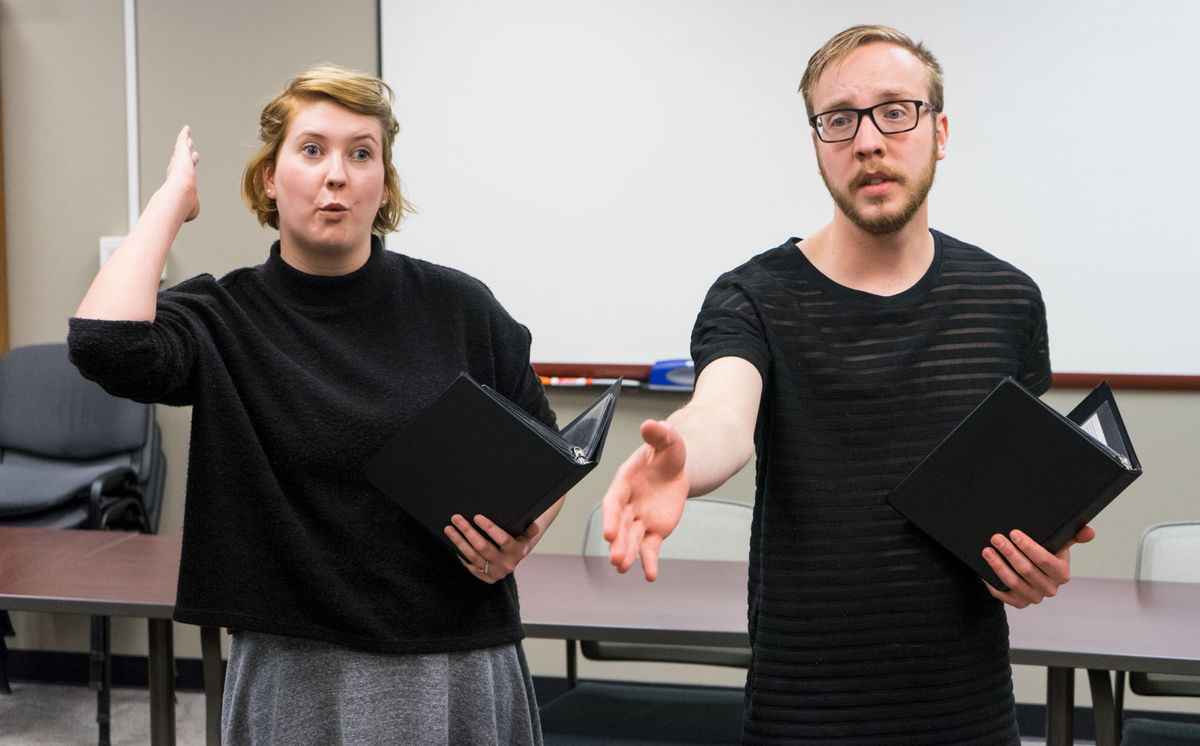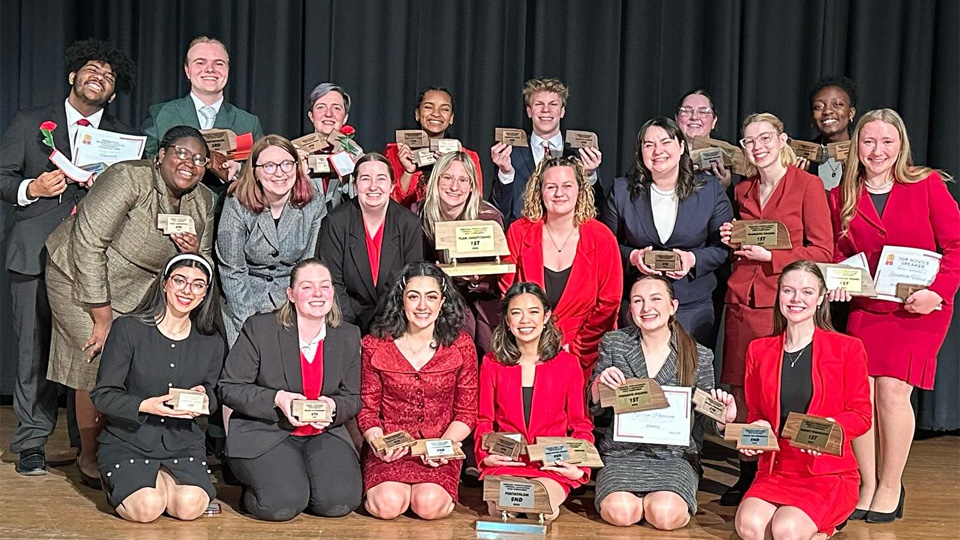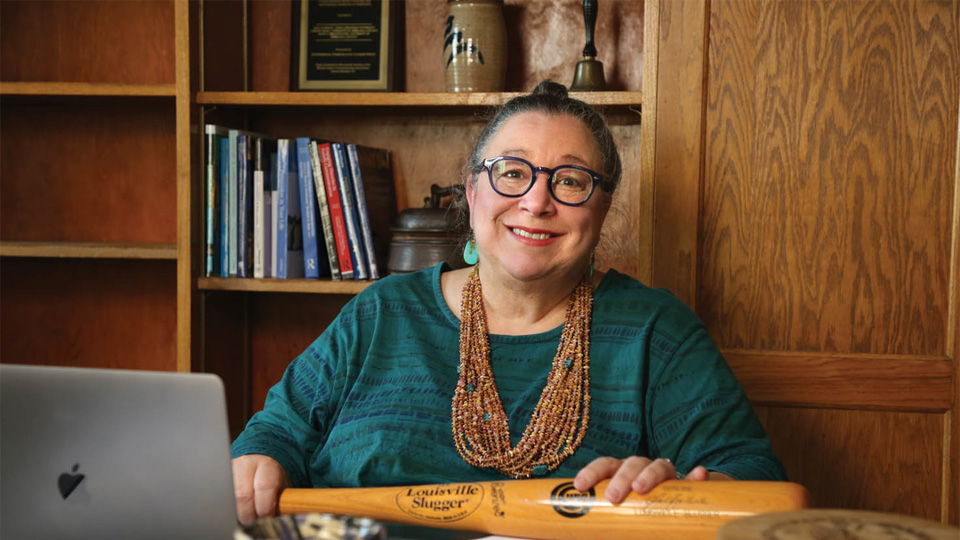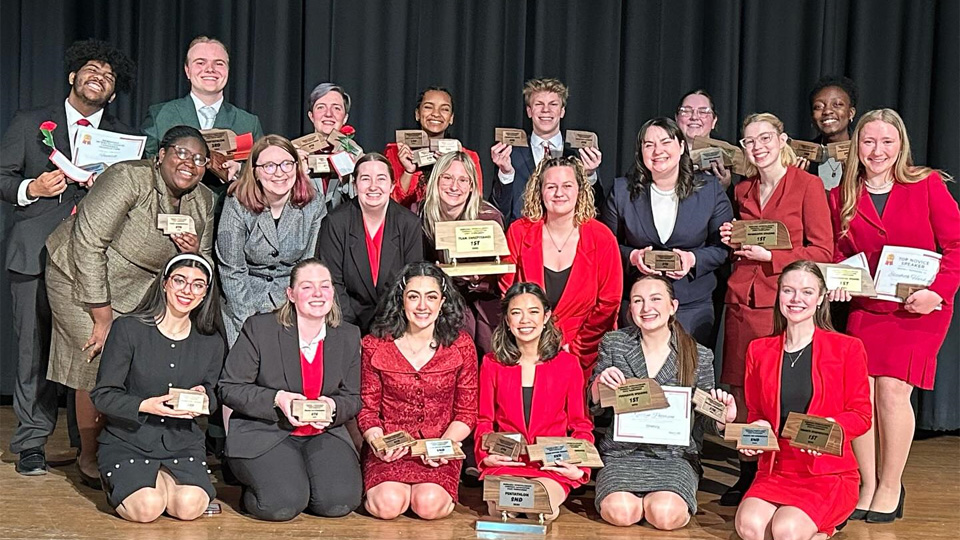
If you Google “what is the most common fear in the world” you will most likely find an array of answers, and glossophobia, the fear of public speaking, will be among them. However, there is a group of students on campus who are not afraid of that at all.
For the last 22 years, the university has placed in the top 20 at nationals, placing ninth last year. Speech is the oldest student activity on campus, in its 146th year.
The Speech and Debate Team will be competing at American Forensic Association National Individual Events Tournament at Bradley University in Peoria, Illinois, during the week of March 27.
Though the team has encountered much success, the journey of a single speech season is a long one, starting in September and finishing in April.
“It’s always fun to look forward to the culmination of a season, and to see all the hard work the students have put in and are putting in to lead up to nationals,” Duncan said.
Duncan also said while the long season can be stressful for students, it allows competitors to rehearse, revise and polish their pieces for the national competition.
“It’s exciting to see people evolve as they start out, as they better understand their characters or as scripts get re-written and people become better writers and stronger performers,” Duncan said.
Some of his students will even go through 15 drafts of the same speech.
The process of ranking at the national competition is extensive. Each speech event has about 150 competitors in it to start. After three preliminary rounds with two judges, the number of competitors is narrowed down to the top 24 and then further diminished until only the top six competitors remain. They then compete in a final round with each other.
There are multiple events in speech, but one category of the more acting-oriented events is interpretation, which can contain poetry, prose, duo performances and single performances.
“We also want all of our interpretation events to not only tell a story but to make an argument through that story,” Duncan said. “So it’s more than ‘this is fun to listen to’ but it’s ‘I’m learning something here or I am showing you something or illustrating an idea.’”
Senior communications studies major Jonathan Baker is competing in his eighth year of speech and is taking several interpretation events to the national competition.
“That has been a challenge,” Baker said. “Sometimes judges understand the metaphor if you are performing in a way that makes the metaphor clear, but it takes a lot of performance choices to get that across to an audience”
Junior English major Matty Merritt is Baker’s teammate and duo interpretation partner. The message they convey through their artistic performance together has to do with art itself, according to Baker and Merritt.
Their script tells the story of a poor woman, portrayed by Merritt, who thinks she has found a Jackson Pollock original in a thrift store. She then asks an art critic, portrayed by Baker, to verify it.
“It’s this push and pull between her trying to keep me there and me saying it’s tacky and gross,” Baker said. “It’s all about how art has the potential to be classist.”
Merritt also said some of the unique challenges that come as a competitor is finding useable pieces of literature that can be turned into scripts.
Merritt is also performing a serious interpretation in which she said she is trying to change the sexual assault narrative.
“I feel a lot more confident in my pieces,” Merritt said. “I have a lot more passion for the stuff I’m doing this year.”
Even though speech contains many individual events, Baker said he still enjoys the atmosphere of this community.
”We’re constantly working together,” Baker said. “I try to watch everyone’s speech on the team and I try to have a lot of people watch my speeches.”
Merritt said her coaches were an instrumental part of her journey as a competitor.
“You want every single person to succeed,” Merritt said. “We [put] pressure on ourselves to do well but the coaches are the ones who give us the inspiration and the opportunities to have success.”
Baker said all the practice and the effort put forth by him and his teammates is definitely worth it.
“It’s stressful but we’ve put in the work, and it’s so much fun,” Baker said.



